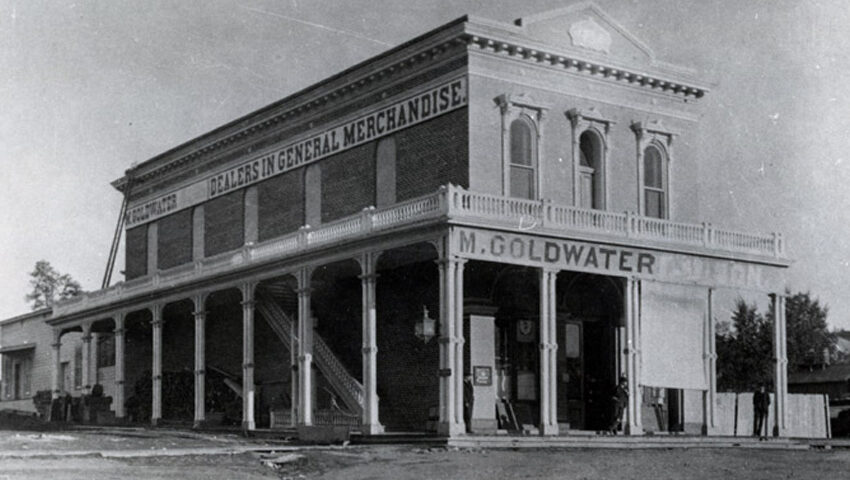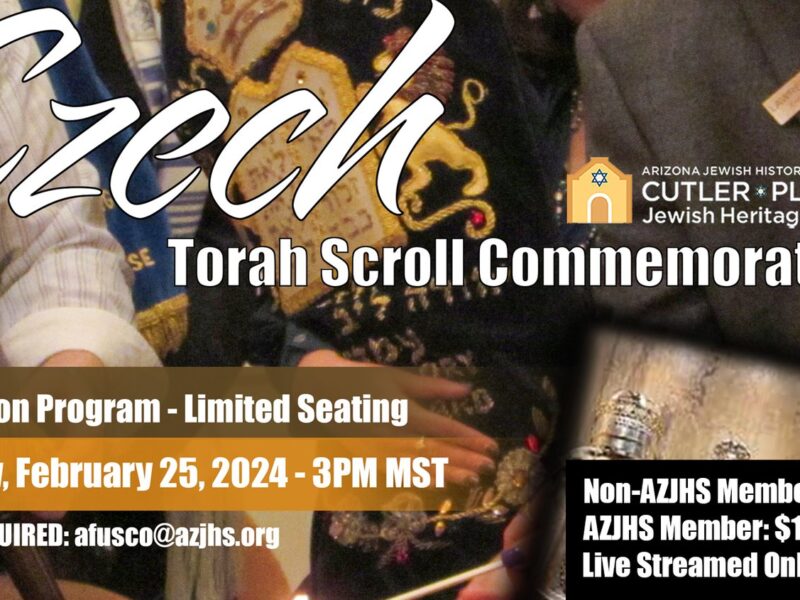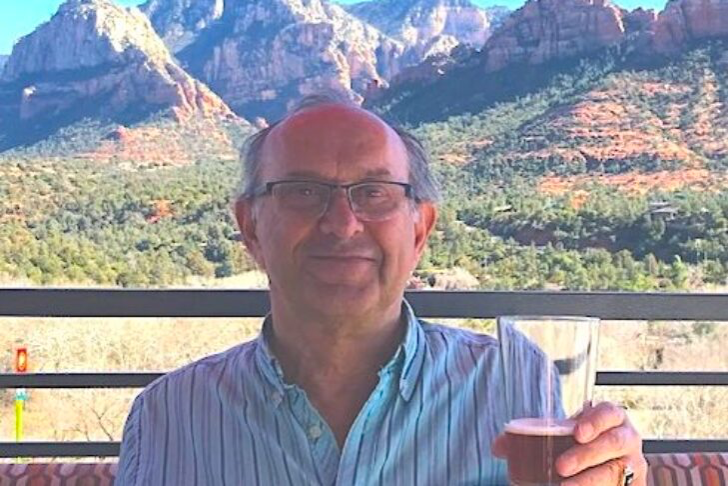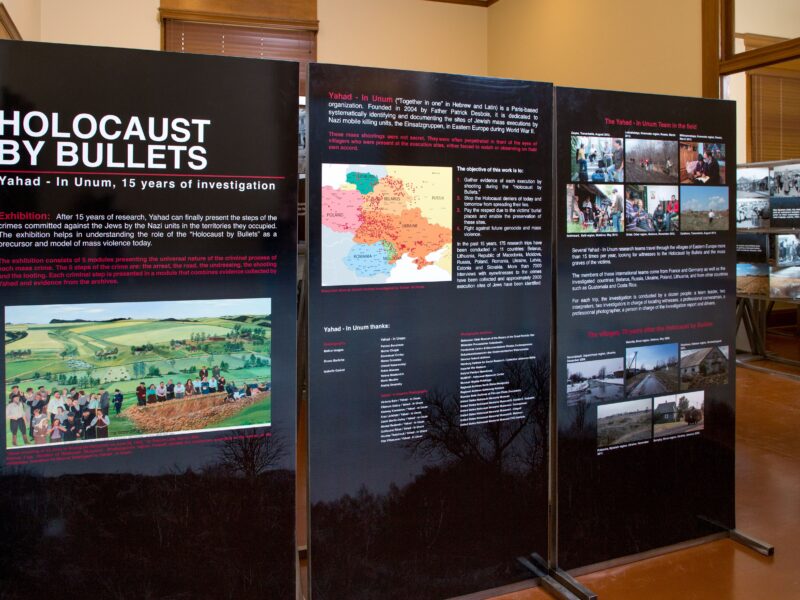In the mid-1940s through the 1980s, Goldwater’s was a very fine department store with locations in downtown Phoenix, Park Central Mall and Scottsdale Fashion Square. As with other Arizona businesses, its roots lay in the history of the early Jewish pioneers who came to the West to make their fortunes. These men and women were a rugged bunch, who had more misadventures than triumphs. But some became very successful. One such man was Big Mike Goldwater.
Born Michel Goldwasser in Konin, Poland, in 1821, Big Mike was one of 22 children. He left Poland for France at the age of 15 to escape military conscription and the pogroms that ravaged the Jewish communities at the time. In Paris, he got a job as a tailor and lived a tranquil life until 1848, when the war and riots taking place in the city forced him to once again seek a safe haven. He fled to London where he met his future wife, Sarah Nathan. They were married in 1850 and soon had two children. It was in London that Goldwasser was anglicized to Goldwater.
The Goldwaters lived a comfortable life in London, until Mike was joined by his younger brother Joe. Lured by news of the Gold Rush in California, Joe convinced Mike and his family to sell their business and move to California. To say the least, Sarah was not enamored with her brother-in-law for taking her husband off on this wild adventure.
In the 1850s this was a long, hard trek: after crossing the Atlantic, they made their way overland across the rugged, mosquito-filled Isthmus of Panama (no railroad until 1855 and no canal until 1914), followed by a long sea voyage up the Pacific coast of Central America and Mexico before reaching California.
Drawn by other Jewish merchants, the brothers’ first venture was a saloon in Sonora, CA, a mining town located 130 miles east of San Francisco. After a few months, Mike sent for Sarah and the children. When Sarah arrived, she found a very rough existence, certainly not fitting for a cultured Jewish woman from London! She was not happy with the business her husband had selected and appalled by the brothel that rented the second floor of the saloon.
Within a short time, Sarah moved to San Francisco, which she considered crude by comparison to London, but she nonetheless lived there for the remainder of her life. There is no record of her ever traveling to Arizona, where her husband ultimately became quite successful. But the fact that she had six more children is sure evidence that Mike visited her quite often in San Francisco.
The Sonora venture did poorly, leaving Mike and Joe $3,000 in debt. Their next step was a move to Los Angeles, where they opened a billiard parlor, bar and tobacco shop in the Bella Union Hotel.
A friendship with a Dr. Wilson W. Jones turned Mike’s fortunes around. He convinced Mike to try to do business in Gila City, a mining camp 20 miles north of Yuma. Brother Joe advanced Mike the funds to purchase a wagon, merchandise to be peddled to the miners and four mules to pull all of it through the hard desert ride to the Colorado River.
Mike’s trade along the Colorado River did well until 1862 when Joe, now in San Francisco, overextended himself buying merchandise. An ensuing sheriff’s sale took away all of Mike’s merchandise, his wagon and his mules. He was out of business.
A friend by the name of Bernard Cohn came to the rescue with the offer of a job as a clerk in his general store in La Paz, AZ, a trading center on the Colorado River. This move established Mike in Arizona. Since Cohn lived in Los Angeles and rarely came to the store, the business was virtually Goldwater’s. He soon became Cohn’s partner and before long purchased the business. Goldwater’s Department Store dated its beginning to the store in La Paz.
Big Mike was now on his way. The store in La Paz was successful, except for one major setback: the river. A flash flood one day forced the Colorado River to change course, leaving the store in La Paz without its main artery of transportation. Mike was forced to move his business to another location along the Colorado, founding a town he called Ehrenberg, in memory of his friend Herman Ehrenberg, who was slain by the Indians.
In 1872, facing minimal success at his new location on the Colorado River, Mike decided to open a store in Phoenix. At that time Phoenix was a backwater town. It was so insignificant on the Arizona landscape that it was bypassed when the railroad was brought to key areas of the state. It didn’t take long for Mike to realize that this was a mistake and closed the store in Phoenix. (It reopened 20 years later, in 1892, under the management of Mike’s dapper son, Baron, and flourished.)
Not to be deterred by his last two failures, Mike turned his attention to Prescott, the territorial capital. This decision finally hit pay dirt, as the Prescott store succeeded and soon expanded to any town in the territory where there was a mining venture. At different times there have been Goldwater stores at La Paz, Ehrenberg, Prescott, Parker, Seymour, Lynx Creek, Phoenix, Bisbee, Fairbank, Contention, Tombstone, Benson and Critenden (not only are all the Goldwater stores gone now, but so are many of these towns).
Goldwater’s became a household word. The Goldwater merchandising that started in the early 1860s along the Colorado River lasted a century, until 1962 when the business was sold to Associated Dry Goods, which expanded the Goldwater chain to nine stores in the Tucson, Albuquerque and Las Vegas markets. In 1986, Associated Dry Goods was acquired by May Department Stores, and in 1989 the Goldwater division was dissolved.
According to Big Mike’s grandson, Barry, who achieved fame in his own right as a senator from Arizona and a 1964 presidential candidate: “In the early days our family tried to meet every need of their communities. … We stocked groceries and stock feed; shoes and hats; furniture from Austria and herrings from Holland; horseshoes and horse collars; we had lamps and rugs for the front parlor, spices and soap for the kitchen, and anything needed for the outhouse.”
Big Mike Goldwater was very proud of his Jewish heritage and was involved in the Jewish community, both in Prescott and, after his retirement, in San Francisco, where he was an officer in three congregations. He chaired the committee that founded the Hills of Eternity Cemetery in Colma, CA, and headed the first Hebrew Benevolent Society in San Francisco. Records show that he chaired the first Zionist meeting in that city in 1898.
From beginning to end, Goldwater’s represented the endurance and perseverance of its founder.
Ann Polunsky is a longtime Phoenix resident and a past president of the Arizona Jewish Historical Society. She has been a popular presenter about the Pioneer Jews of Arizona.






